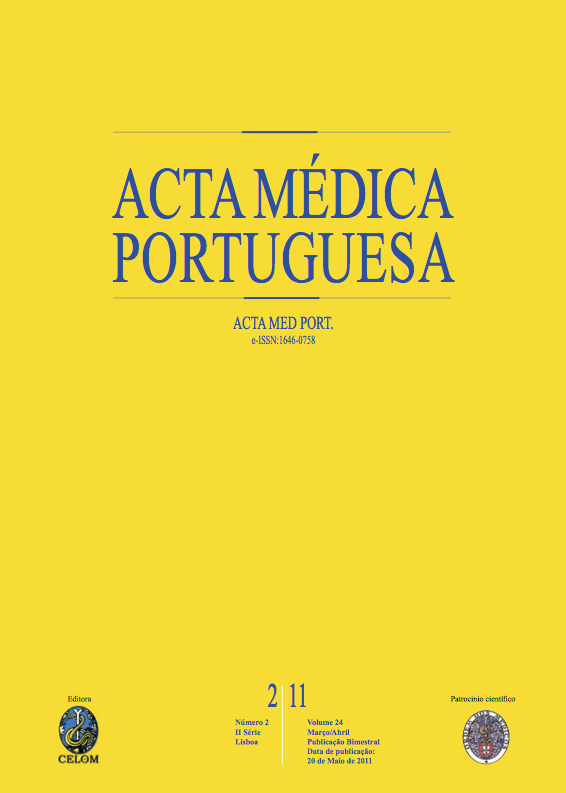Maternal coffee intake and associated risk factors: effects on fetal growth and activity.
DOI:
https://doi.org/10.20344/amp.1626Abstract
Empirical studies have shown that fetal growth and activity can be affected by several risk factors, such as maternal anxiety, depression and tobacco or alcohol consumption. Caffeine intake has received less attention in the literature, as well as the analysis of the mutual interplay of the range of such risk factors. This study aimed to examine effects of mother's coffee intake and associated risk factors during early pregnancy on fetal growth and activity. The sample involved 47 fetuses (51.1% male and 48.9% female) with gestational ages between 20-22 weeks whose mothers were recruited in a Portuguese antenatal obstetric unit. Repeated measures of mother's anxiety (STAI-S) and depression (EPDS) and information about socio-demographics and substances consumption were collected during the first and second trimesters of pregnancy. Fetal activity and biometry were measured during the 2(nd) trimester ultrasound. Results showed that 1) 23.4% of the pregnant women (N = 11) had regular coffee intake; 2) no significant differences were found neither on fetal growth nor on fetal movements considering mother's coffee intake; 3) when mother's socio-demographics and substances consumption were considered, tobacco consumption and anxiety at the 2(nd) trimester appeared as significant predictors of fetal growth and mother's coffee intake and anxiety symptoms at the 2(nd) trimester emerged as significant predictors of fetal movements. An adverse impact of maternal coffee intake during pregnancy was found on fetal activity but not on fetal growth. A deeper understanding of the multiple pathways by which these risk factors affect fetal growth and activity is needed.Downloads
Downloads
How to Cite
Issue
Section
License
All the articles published in the AMP are open access and comply with the requirements of funding agencies or academic institutions. The AMP is governed by the terms of the Creative Commons ‘Attribution – Non-Commercial Use - (CC-BY-NC)’ license, regarding the use by third parties.
It is the author’s responsibility to obtain approval for the reproduction of figures, tables, etc. from other publications.
Upon acceptance of an article for publication, the authors will be asked to complete the ICMJE “Copyright Liability and Copyright Sharing Statement “(http://www.actamedicaportuguesa.com/info/AMP-NormasPublicacao.pdf) and the “Declaration of Potential Conflicts of Interest” (http:// www.icmje.org/conflicts-of-interest). An e-mail will be sent to the corresponding author to acknowledge receipt of the manuscript.
After publication, the authors are authorised to make their articles available in repositories of their institutions of origin, as long as they always mention where they were published and according to the Creative Commons license.









